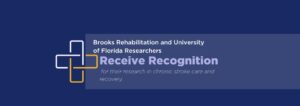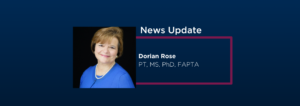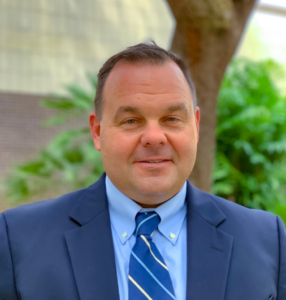Researchers at Brooks Rehabilitation and Columbia University Publish Study on Effectiveness of Aphasia Centers

Back to physical health resource hub
Lisa A. Edmonds, PhD, CCC-SLP, from Columbia University and Jodi Morgan, CCC-SLP from the Brooks Rehabilitation Aphasia Center, have found that participation in aphasia centers can result in significant changes in language, functional communication and quality of life in people with chronic aphasia. Results of the research study, titled “Two-Year Longitudinal Evaluation of Community Aphasia Center Participation on Linguistic, Functional Communication, and Quality of Life Measures Across People With a Range of Aphasia Presentations,” were published in the American Journal of Speech-Language Pathology.
Aphasia is an acquired communication disorder usually caused by a brain injury such as a stroke, head trauma, infection or brain tumor. The ability to read, write, speak or understand language can be lost or reduced, altering many life activities. However, it does not affect a person’s intellect. More than 2 million people in the United States suffer from aphasia.
As Brooks was developing its Brooks Rehabilitation Aphasia Center (BRAC), there were few quantitative studies done on their effectiveness – prompting the need for this type of study. Twenty-seven members of the BRAC were evaluated. Participants ranged in age and were considered chronic aphasia cases, with most being almost four years post onset of aphasia. Many members had moderate to severe aphasia. If they received outpatient therapy, home health or other services outside of the center, their data was not included in the study.
Multiple tests and questionnaires served as outcome measures to determine whether, and when, improvement to language, functional communication, and quality of life might occur after 1 and 2 years of voluntary aphasia center participation. The results showed improvements across all measures at Year 1, and improvements were maintained at Year 2 for all measures except the except for the self-reported measure of functional communication.
The study concluded that participation in aphasia centers can result in significant improvements in language, functional communication, and quality of life in people with chronic aphasia. Morgan recently presented the results of the study as a poster presentation at a meeting of the American Speech–Language–Hearing Association (ASHA).
“The quantitative results are important,” said Morgan. “But it’s also important to realize that an aphasia center is more than its sum of component parts or how those parts relate to individual outcomes. It is about the people, the relationships, and each individual being an integral part of the larger whole. It is often the casual and organic conversations that occur in the hallway or during outings that empower the participants the most. While difficult to scientifically describe and measure, it gives participants the time and place to reimagine living successfully day-to-day with aphasia.”
The BRAC offers two programs, including a community track and a six week intensive, comprehensive aphasia program (ICAP).It is dedicated to helping people with aphasia and their families through language and social groups, communication partner training, on-line Zoom groups and communication partner support groups. The BRAC encourages multi-modality communication techniques and increases confidence to help live successfully with aphasia and learn new ways to communicate.
To view the full study, please click here.
For more information about the BRAC, email [email protected] or call (904) 345-6780. For our address and driving directions, visit our Brooks Rehabilitation Aphasia Center location page.


